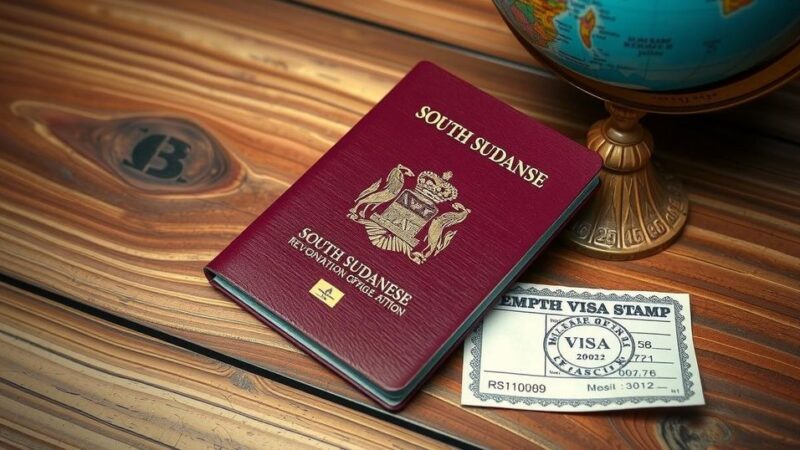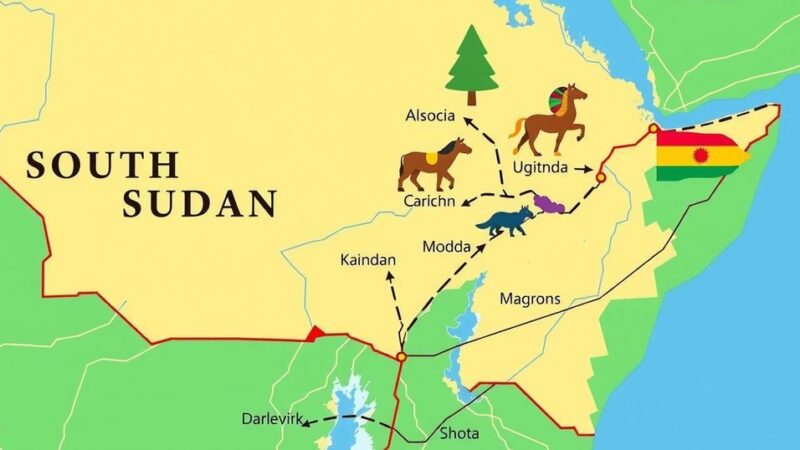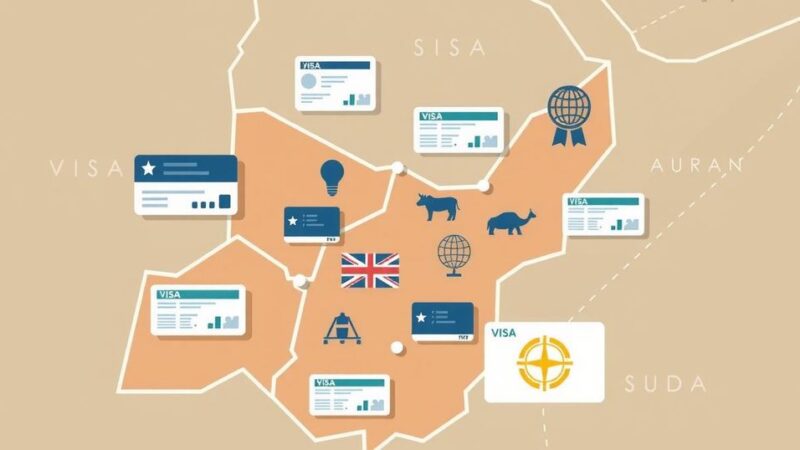A key party in South Sudan’s coalition government has withdrawn from peace process security arrangements amid rising tensions between Riek Machar and Salva Kiir, following recent clashes and arrests of SPLM-IO officials. This situation has resulted in the displacement of thousands and heightened fears of a renewed civil war, exacerbated by the ongoing conflict in neighboring Sudan.
On Tuesday, a significant party within South Sudan’s coalition government announced its partial withdrawal from a crucial aspect of the 2018 peace deal, as tensions between its leader, Riek Machar, and President Salva Kiir escalate due to ongoing clashes and arrests. This agreement had previously brought an end to a five-year conflict between Kiir’s and Machar’s forces, with Machar currently serving as First Vice President and heading the SPLM-IO party.
The deteriorating relationship between the leaders has sharply intensified following recent altercations in eastern South Sudan. Security forces have detained several SPLM-IO officials, including the petroleum minister and the deputy head of the army, amid actions stemming from the White Army militia, which compelled government troops to withdraw from the town of Nasir, positioned near the Ethiopian border.
The government accuses the SPLM-IO of maintaining connections with the White Army, comprised primarily of ethnic Nuer youths who had previously fought alongside Machar’s forces in the war against the predominantly ethnic Dinka coalition loyal to Kiir; however, the SPLM-IO refutes these claims. Oyet Nathaniel Pierino, the party’s deputy chairman, stated that the SPLM-IO would refrain from participating in security arrangements linked to the peace process until the detained individuals are released, asserting that ongoing political persecution jeopardizes the integrity of the peace agreement.
The skirmishes surrounding Nasir in Upper Nile state have resulted in a displacement of 50,000 individuals since late February, with 10,000 fleeing to Ethiopia, as reported by Anita Kiki Gbeho, the United Nations Humanitarian Coordinator in South Sudan. Nicholas Haysom, South Sudan’s UN peacekeeping chief, expressed alarm that the nation verges on a potential relapse into civil strife, exacerbated by rampant hate speech and disinformation proliferating in the public sphere, which raises concerns of an ethnic conflict dimension, as articulated in his address to the African Union.
Analysts have noted that the war in neighboring Sudan has further destabilized the peace process, with interruptions in South Sudan’s oil revenues, which heightens regional tensions and arms influx. Alan Boswell from the International Crisis Group remarked that indications of conflict spillover from the Sudan war to Upper Nile are already apparent, making it increasingly challenging to contain these tensions from reaching the capital city, Juba.
In summary, the SPLM-IO has temporarily withdrawn from security arrangements related to the peace process due to escalating tensions between its leader and the president, exacerbated by recent political arrests. The internal strife in South Sudan has led to significant displacement of civilians, heightened by the vulnerabilities introduced by the conflict in Sudan. The potential for civil unrest and ethnic conflict requires urgent attention to prevent further deterioration of the peace agreement.
Original Source: www.thestar.com.my






